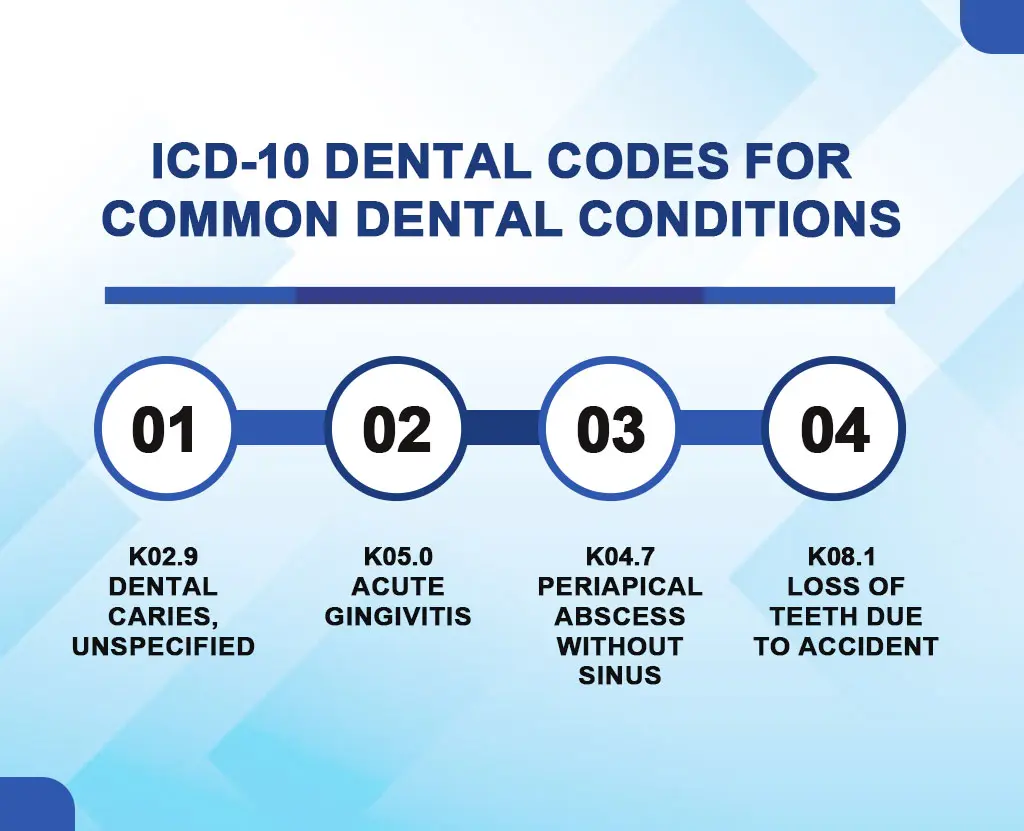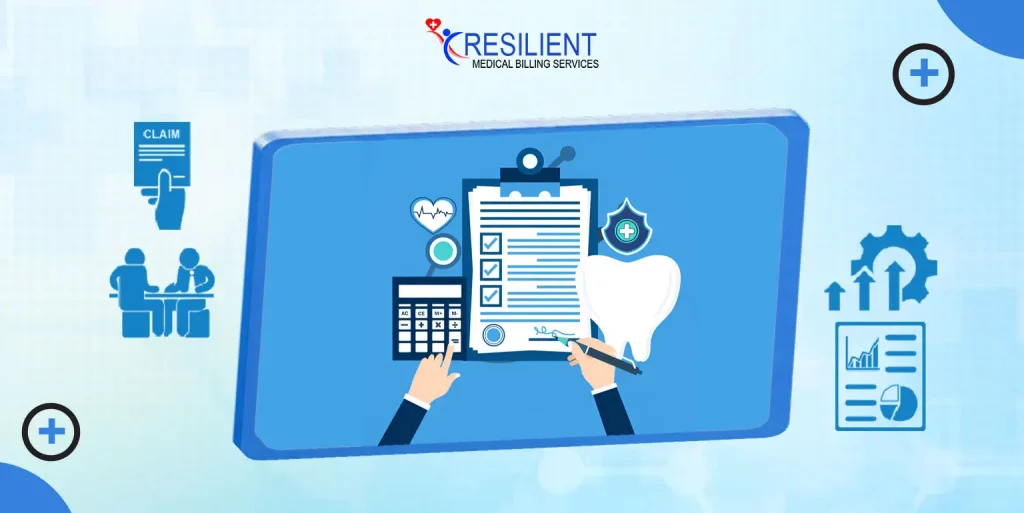Managing dental insurance claims without a system would be chaotic and confusing, and important care would be postponed! Here come dental billing codes. These codes are necessary for correct invoicing, treatment documentation, and fair reimbursement.
Over 50% of dental claim denials are due to erroneous or incomplete coding, which slows reimbursement. Dental billing codes simplify each step from the dental chair to the final claim code, similar to medical billing codes.
Studies show that proper coding can cut down on claim denials by 80%, which speeds up reimbursement and makes the practice’s income cycle more efficient. Dentists can cut down on payment delays by keeping accurate records of treatments and procedures. This speeds up the billing process and makes sure that patients get quick, smooth care.
This blog’ll look at how dental billing codes simplify insurance claims, ensure proper billing, and improve patient care.
Understanding Dental Billing Codes
Dental billing codes are alphanumeric codes designed for uniquely identifying particulars of dental services and procedures for billing and insurance. These codes help to support the correct recording and handling of claims to make sure that dental practitioners are paid enough for services provided. The most commonly used coding systems in dentistry include the American Dental Association’s Current Dental Terminology (CDT) codes.
What are ICD-10 Dental Diagnosis Codes?
ICD-10 Dental Codes for Common Dental Conditions

Here are a few of the most common codes:
K02.9 – Dental caries, unspecified: This code is used to signify the existence of cavities or dental caries in a given patient without concern to the area affected.
K05.0 – Acute gingivitis: When the inflammation is acute, this code helps to properly record the state of gum disease.
K04.7 – Periapical abscess without sinus: His official diagnosis was a dental abscess, which is simply an infection around the root of a tooth.
K08.1 – Loss of teeth due to accident: This code is for the number of missing teeth resulting from any form of mishap, removal of some teeth or gum disease.
Dental practitioners can report treatments and diagnoses consistently with these codes. ICD-10 dental codes help clinics align patient records, improve insurance claims, and reduce provider-insurer misunderstandings.
Category | Code | Description | Usage Details |
Diagnostic | D0120 | Regular Oral Checkup | For routine dental examination |
Preventive | D1110 | Adult Dental Cleaning | Standard cleaning for adult patients |
Restorative | D2140 | Single-surface Amalgam filling | Filling for one-surface cavity |
Endodontics | D3310 | Root Canal Or anterior tooth | Treatment of root canal on a front tooth |
Periodontics | D4341 | Scaling and root planing, per quadrant | Deep cleaning for gum disease |
Prosthodontics (Removable) | D5110 | Full upper denture | Applied when a full upper denture is required |
Oral surgery | D7140 | Removal of exposed tooth or root | Basic tooth extraction procedure |
Orthodontics | D8080 | Adolescent comprehensive orthodontic treatment | Braces for patients under 18 years |
Recurrent Dental Infection ICD-10 Codes
Chronic periodontal diseases are best managed and coded to ensure that records reveal a sequential presentation of the same and the various treatments accorded in the past.
Here are some ICD-10 codes specific to recurrent dental infections:
K04.6 – Periapical abscess with sinus: This code is used to report an infection that has resulted in an abscess with sinus involvement meaning the infection is a little severe or complicated.
K05.2 – Aggressive periodontitis: Patients with recurrent infection of the gums, this code points towards a worsening condition of gum disease.
Importance of Accurate Dental Billing Codes and Coding
Nowadays Dental practices need to code properly in order to receive proper reimbursement. Getting reimbursed is easier with correct ICD-10 codes and also can ensure that the right claims are handled fast and efficiently. Typing errors can cause denied claims, missed revenues, and, of course, issues with patient treatment.
It is clear that coding errors can hold up claims while, at the same time, ruining patient records so that treatment reports which should be available may well be missing or incorrect. To achieve effective, continuing treatment, patients with chronic or relapsing conditions require documentation. Errors in dental billing codes can bring damage to the patients as well as the productivity of the dental practice can be prevented by having a professional in dental billing.
Closing Thoughts!
There is a necessity for the right ICD-10 diagnosis for dental billing, and both dental clinics and insurance companies need it. Accurate coding including dental billing codes is critical to a dental practice.
They can keep their attention on providing great quality services because by coding each diagnosis and operation accurately, they will also eliminate such possibilities as claim denial or delayed payments. Their use in the assessment of development and management of care plans is a perfect indicator.
ICD-10 dentistry coding and training enhance the billing of dental surgeries. While your personnel might not be handling difficult access cases and might not be producing paperwork that meets new rules on billing, if trained, they can certainly do so.
Resilient MBS provides service for dental billing and ICD-10 training for correct dental billing codes. We assist your clinic code as accurately as possible to support clinical functioning and patients.











